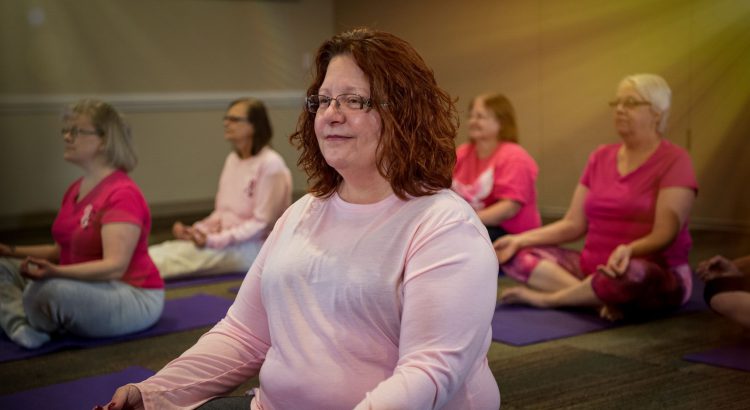I am sure you may have a family member, friend, coworker or neighbor who has been diagnosed with breast cancer. In fact, one in eight women will have breast cancer in their lifetime.
What can you do to help reduce your risk for breast cancer?
- Live an overall healthy lifestyle. This includes eating a well-balanced diet, being physically active and limiting alcohol. Unfortunately, breast cancer can still develop even if we live the healthiest of lifestyles.
- Get an annual mammogram. Staying on top of your breast screening with a yearly mammogram can help detect breast cancer at a very small size. Early detection of breast cancer can make the disease easier to manage, improve overall outcomes and can save lives. Confused about when to start screening for breast cancer? According to the National Comprehensive Cancer Network, a woman should start screening their breast with mammograms at age 40.
- Monthly self-breast exams as well as a yearly breast exam by a medical provider is another important part of your breast cancer screening. The practice of self-breast exams and yearly breast exams by a provider should be started in young adulthood.
- Know your family history. If there is a strong family history of breast cancer, mammograms may need to be started at an even earlier age and additional tests such as a breast MRI may also be needed.
A woman’s risk for breast cancer is calculated using multiple factors, including weight, breast density and family history. If an individual is at high risk, she will get a yearly MRI in addition to a yearly mammogram. If you have a family history of breast cancer or dense breast tissue, your risk should be calculated.
If you think you could be at high risk and would like to get evaluated, call the Center for Breast Health at 410-871-7080 and make an appointment today.
Laura Osborne, PA-C, runs the high-risk breast cancer program at Carroll Hospital’s Center for Breast Health.
Get Screened!
From October 21 to November 15, LifeBridge Health’s Mammothon offers a personalized, stress-free way to prioritize your breast health. By providing quick and convenient mammograms at multiple locations, we aim to help you take proactive steps toward early breast cancer detection—because the earlier it’s detected, the better the outcome.
